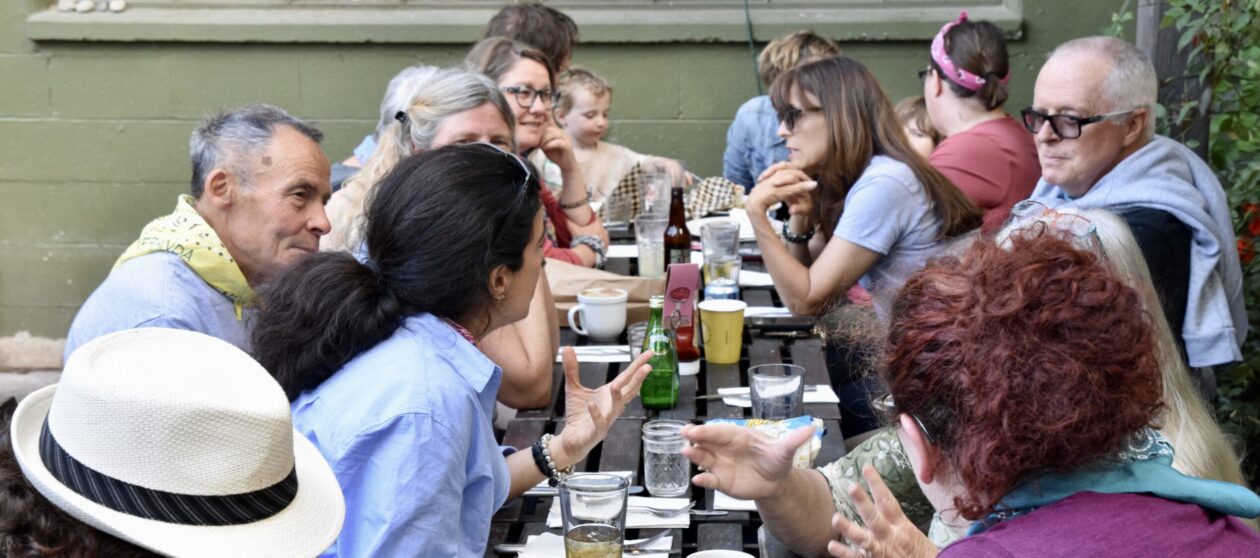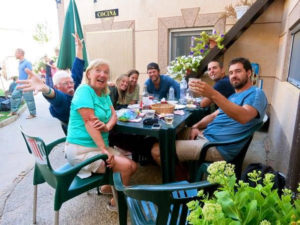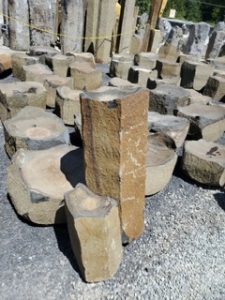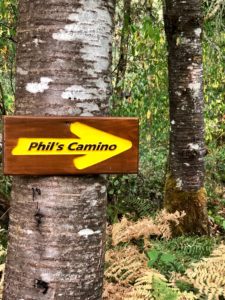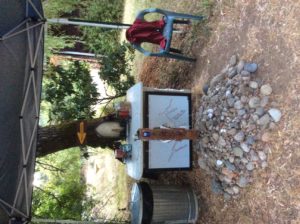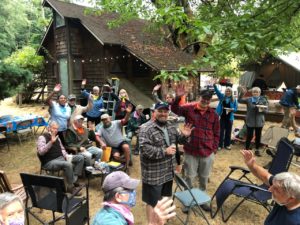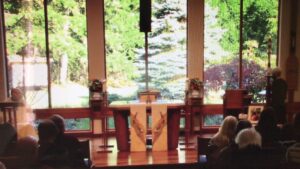
Dear Caminoheads,
Today, I had another experience of Towers of Babel. Very different from yesterday’s though.
Today I finished work and I called my aunt who is in a nursing home 400 miles away from where I live (and in a situation which is very painful, but beyond the distance, there are other limitations for me to visit her). My aunt has severe Alzheimers disease; sometimes she knows who I am when I call her, most of the times, after a couple words, she doesn’t know anymore. Her voice is the same and the things she tells me are known to me, because are the same things she has told me along my life: for example, that she was in a hurry and she fell in the street and now her knee is in pain. I think, she has told me that before she had Alzheimers once a month; sometimes it happened, some other times, it was her way of starting a conversation, maybe to call my attention too. These days, in between these comments that might seem real, most of the sentences she tells me (which are a lot, she is quite chatty) have no sense, no coherence, she mixes her glasses with the refrigerator, and a pizza with my grandfather.
Yet, for the most part, I understand what she tells me, because it is not in the sentences she builds with the words she uses, but in what I can picture that is going in her mind, from the many years I have known her. And because the mind is a marvelous thing, and some of the things she builds sentences about have to do with something she lived, and I lived too (even by the stories she told me), so somehow, this lack of coherence have a sense to me.
After talking to my aunt, I went upstairs, to take a package I got in the mail for one of my neighbors who had a baby girl 40 days ago. The baby is tiny, was born with low weight and while has gained some, still is tiny. My neighbor has waited for this baby for many many years, and told me she feels a terrible mother because she doesn’t know what to do when her baby cries desperately because she doesn’t know what is wrong, uncomfortable, etc. with her.
I told her that maybe she didn’t need to know exactly what is wrong or uncomfortable, but maybe, find the way to transmit to her baby that she understands that something is uncomfortable to her and she is doing her best to make her feel better, even if what she is doing doesn’t stop the baby’s cry.
I realized it was not different from what I do with my aunt. And somehow it is not different when I walked with 3 French couples in the Camino and we had like an hour long conversation even when they only spoke French and my French is inexistent.
I think what matters is the intention to understand: to try to put in the other’s shoes and check if we can get a sense of what they may be going through and what they would like to share with us about their experience if they could. Like me here today, a native Spanish speaker, with English as a third language, trying to share some thoughts about communication!
Thanks for understanding Loves,
Cris
